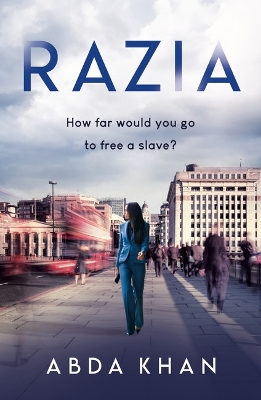Reviewed by Jeff Sexton on
Reading updates
- Started reading
- Finished reading
- 8 July, 2019: Reviewed

Farah is a lawyer living and working in London. She’s just ended a long relationship, and her parents are looking for a husband – whether Farah wants one or not. So far, so normal. But at a work dinner, hosted by a dangerously powerful man, she comes across a young woman called Razia, who Farah soon realises is being kept as a domestic slave.
Farah travels from the law courts of London to the brick kilns of Lahore, and there she begins to uncover the traps that keep generations of people enslaved. Everywhere she turns there is deep-rooted oppression and corruption. She teams up with a human rights lawyer Ali to seek justice for Razia, but they cannot prevent the disaster that unfolds.
Will Farah discover the explosive secret behind these tragic events?